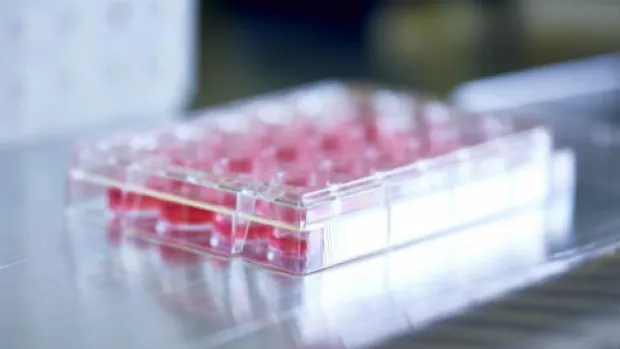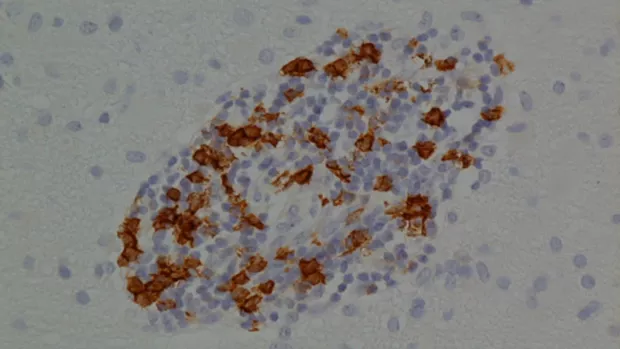
Results from new infusion treatment show relapses reduced
Results of two clinical trials for relapsing remitting MS showed new drug ublituximab was better than the existing treatment teriflunomide (Aubagio) at reducing relapses. And people taking ublituximab developed fewer new lesions.
Over 1000 people with relapsing remitting MS spent two years on the phase 3 trials testing ublituximab. Now the company TG Therapeutics have published the results in a scientific journal.
Read the published paper on the journal's website
Phase 3 trials are the final step before a treatment can receive regulatory approval. The European and US regulators are currently reviewing applications for ublituximab for relapsing remitting MS. But we don’t yet know about the situation in the UK.
If licensed, it could give more choice for people with relapsing remitting MS. Ublituximab is given as a one-hour infusion every six months. So it could be a more convenient treatment time for people who might not want to take a daily tablet. And it’s a shorter infusion time than other infusion treatments.
Fewer relapses with ublituximab
The results showed people on ublituximab had fewer relapses and developed fewer lesions on MRI scans compared to people on teriflunomide.
But we don’t know how ublituximab compares to the most highly effective existing treatments for relapsing MS, like ocrelizumab or alemtuzumab.
Disability progression
Unfortunately, ublituximab wasn’t any better than teriflunomide at slowing down how fast people’s disability got worse.
The team looked at disability progression by changes in Expanded Disability Status Scale (EDSS). Most people’s scores didn’t change during the two years they spent on the trial – whichever treatment they were taking.
Some people improved. There were slightly more people who improved in the group taking ublituximab, but not enough for the researchers to think it was meaningful.
A very small number of people worsened. This number was similar for people regardless of whether they were taking ublituximab or teriflunomide.
Normal side effects from infusions
Nearly half the people on ublituximab had some mild side effects like fever and chills, normal responses to infusion treatments.
It was also common for people on the trial to experience infections. Some of these infections were serious. Three people died from infections, all of which were on ublituximab. But the infections were not directly caused by the treatment.
How does antibody therapy work?
Ublituximab works in a similar way to existing treatments ocrelizumab and ofatumumab. These antibody therapies all target a type of immune cell called a B cell. This study adds evidence showing this approach is effective.
Ublituximab is an antibody which are proteins usually produced by immune cells. Antibodies travel in the bloodstream and can stick to specific parts of cells. Antibody therapy works by attaching to a type of immune cell, called B cells. The antibody triggers them to self-destruct, reducing their numbers. B cells are one of the immune cells that attack myelin in MS.
Trials for progressive MS
There are still tens of thousands of people with progressive MS who don’t have any treatments. And this study only included people with relapsing remitting MS. So we don’t know if ublituximab would have an effect for people with primary or secondary progressive MS.
Ocrelizumab works in a similar way to this new drug and it's licensed for people with early, active primary progressive MS. And there are other potential treatments for progressive MS.




